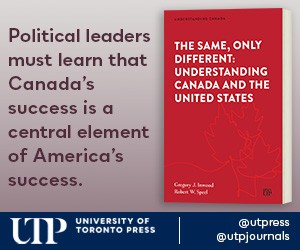Hundreds of thousands of Canadians have criminal records, typically for drug and property crimes. Many become model citizens. A few even wind up in Parliament. Retired two-term Liberal MP Ivan Grose (Oshawa, Ont.) was a convicted bank robber. The late New Democrat MP Frank Howard (Skeena, B.C.) was jailed for armed robbery as a youth. Ex-Conservative MP Guy Lauzon (Stormont-Dundas, Ont.), a recovered alcoholic, had two convictions for drunk driving.
Yet exceptions don’t make the rule, note authors of After Prison: Navigating Employment And Reintegration. Many parolees are shunned in the workplace long after their debt to society is paid. Authors cite one employers’ survey that found most considered parolees to be weak, lazy or dishonest.
“Gainful employment, in essence, provides the foundational ‘building block’ that former prisoners require to transition successfully into society post-release,” authors write. “Employment, beyond a means to sustain a lifestyle in a free society, is a central source of identity.”
Most employers in Canada are small businesses. They have neither the interest nor capacity to be agents of social change. Very few parolees are hired by the Correctional Service of Canada, just as very few medically-released veterans are hired by the Department of Veterans Affairs. The irony is noted.
After Prison is a frank assessment of hard realities. Editors Rose Ricciardelli and Adrienne Peters of Memorial University acknowledge many parolees are not ideal job applicants. Most at sentencing are high school dropouts with addictions. A survey of parolees in Ontario found many who had never used the internet.
“Industries that were the least likely to hire former prisoners were in the areas of finance and insurance, scientific and technical services, public administration and health care,” write authors, citing a tracking survey of parolees in Virginia from 1999 to 2003.
All prejudices aside, authors argue persuasively that stigmatizing parolees is so plainly counterintuitive it is not obvious why large employers don’t try harder. “Incarceration often excludes former prisoners from the mainstream economy, which forces them to turn to secondary markets and informal economies where they are more vulnerable to reoffending,” explains After Prison.
Even wrongful conviction is stigmatized. Authors recount a study in which 1,000 emails by a fictional applicant were sent to employers with Job Bank postings. Applications that cited a wrongful conviction drew a 28 percent response. Applications that mentioned no contact with the judicial system whatsoever attracted a 39 percent response.
“Employment provides releasees with heightened self-esteem, feelings of independence, financial stability and pro-social responsibility,” write authors. “However, employment is hard to come by for former prisoners.”
After Prison is a scholarly appeal to a society that still believes in second chances.
By Holly Doan
After Prison: Navigating Employment and Reintegration; edited by Rose Ricciardelli and Adrienne M.F. Peters; Wilfrid Laurier University Press; 320 pages; ISBN 9781-77112-3167; $39.99









